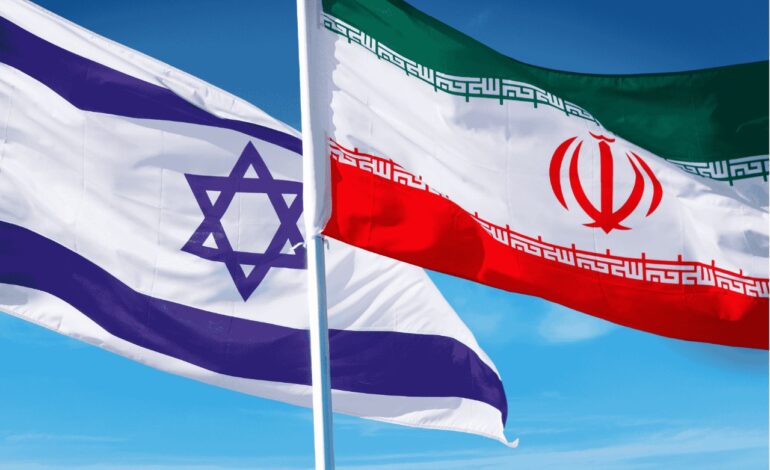Israel-Iran War Escalates With Attacks On Nuclear, Civilian Targets

Israel-Iran Conflict Enters Second Week With Escalating Attacks
The governments of Israel and Iran have entered a dangerous new phase of direct military engagement, marking a significant escalation in tensions. On Thursday, June 19, 2025, Israeli fighter jets targeted multiple nuclear facilities deep inside Iran. In retaliation, Iran launched a large-scale missile and drone attack on Israeli cities, intensifying fears of an all-out regional war.
The airstrikes and counterattacks continued through the early hours of Friday, June 20, 2025, leaving destruction across both nations with no clear diplomatic solution in sight.
Iran Confirms Missile and Drone Strikes on Israeli Cities
In an official statement released at 10:00 AM local time on June 20, 2025, Iran’s Islamic Revolutionary Guard Corps (IRGC) confirmed it had launched a coordinated assault comprising ballistic missiles and drones. The attacks targeted Israel’s military and industrial sites, focusing heavily on Tel Aviv and Haifa, both vital to Israel’s defense infrastructure.
Iran declared these strikes as a direct response to the Israeli bombardment of key Iranian nuclear facilities, accusing Israel of violating its sovereignty.
Israeli Hospital Damaged in Beersheba; Netanyahu Issues Warning
The conflict took a darker turn when, at approximately 2:30 AM local time on June 20, Iranian missiles struck Soroka Medical Center in Beersheba, southern Israel. The strike damaged parts of the hospital complex and resulted in civilian casualties.
Addressing the nation later that morning, Israeli Prime Minister Benjamin Netanyahu condemned the attack, calling it a “crime against humanity.” He warned Tehran’s leadership that it would “pay the full price” for its aggression and hinted that Israel’s military campaign might inspire Iranian citizens to rise against their regime.
Emergency Crews Respond to Strikes in Central Israel
Emergency services rushed to the scene of destruction in Ramat Gan, a suburb of Tel Aviv, where several buildings and vehicles were reduced to charred remains by the Iranian attack. By 5:00 AM on June 20, rescue teams worked to clear debris and treat the wounded, underscoring the human toll of the spiraling conflict.
Israel Expands Strikes on Iranian Territory
Later that day, at 3:00 PM, Israeli Defense Minister Israel Katz announced that the Israel Defense Forces (IDF) had been ordered to intensify their operations. He confirmed that new waves of airstrikes were underway, focusing on military and strategic facilities in Tehran and surrounding areas. The objective, according to Katz, was to dismantle Iran’s military command and weaken its leadership structure.
Israel’s Broader War Goals
Sources close to the Israeli leadership said that Prime Minister Netanyahu’s strategy aims to achieve more than just the destruction of nuclear sites. His demands include Iran permanently halting its nuclear enrichment activities, ending ballistic missile development, and ceasing support for proxy groups like Hezbollah, the Houthis, and various militias operating in Iraq.
This reflects a major shift in Israel’s approach—from containment to direct destabilization of Iran’s ruling regime.
Trump Issues Conflicting Statements on US Role
As the world watches the escalating crisis, US President Donald Trump has sent mixed signals. At a press briefing at 6:00 PM Washington DC time on June 19, Trump stated, “Nobody knows what I’ll do next.” Just 24 hours earlier, in a post on social media, he had hinted at targeting Iran’s Supreme Leader and demanding unconditional surrender.
Behind the scenes, however, diplomatic channels remain open. Steve Witkoff, Trump’s special envoy, reportedly spoke with Iranian Foreign Minister Abbas Araqchi multiple times since Israel’s initial strikes, suggesting that quiet diplomacy continues despite public rhetoric.
Iran Warns of Wider War If Third Party Intervenes
On June 20, 2025, Iran’s Supreme National Security Council issued a chilling statement around 11:00 AM, warning that any intervention by a third nation—implicitly the United States—would provoke a drastically different and more aggressive military response. This has renewed concerns over the security of the Strait of Hormuz, a critical oil transit route that Iran has threatened to block in the event of war.
Israeli Strikes Hit Natanz and Isfahan; Confusion Over Bushehr
Israel’s June 19 night raids, starting at 11:30 PM local time, targeted Natanz and Isfahan, major centers of Iran’s uranium enrichment efforts. Initial reports also indicated a strike on Bushehr, Iran’s civilian nuclear plant, but Israeli officials later retracted that claim, admitting it was an error.
An Iranian diplomat accused Israel of deliberately spreading misinformation as part of a psychological campaign to unsettle Tehran’s allies.
Casualties Mount as War Intensifies
According to military analysts, Israel’s week-long air campaign has killed hundreds of Iranian military personnel, including senior officers and nuclear engineers. The strikes have devastated parts of Iran’s military infrastructure, from radar installations to missile depots.
On the other side, Iranian missile attacks have resulted in the deaths of at least 24 Israeli civilians, mostly in Tel Aviv and Haifa, with dozens more injured. The attack on Soroka Medical Center has been particularly condemned internationally, as hospitals are protected under international humanitarian law.
World Watches as War Pushes Region Toward Wider Crisis
Global leaders continue to call for restraint, but the region remains on edge. Oil prices surged as traders reacted to the potential for a broader regional conflict. Diplomats from Europe, the Gulf states, and Asia have urged both sides to step back from the brink.
As the war between Israel and Iran enters its eighth day, the possibility of further escalation remains dangerously high. Both sides seem unwilling to compromise, leaving the world to brace for what could become one of the most destabilizing conflicts in the Middle East in decades.








2 Comments
[…] June 28, 2025, Russia executed its largest aerial attack against Ukraine since the beginning of the war. The strike involved 537 aerial weapons, including 477 drones and decoys, along with 60 missiles of […]
[…] to Iranian sources, the Qased rocket did not carry a satellite payload and was never intended to achieve orbit. […]
Comments are closed.